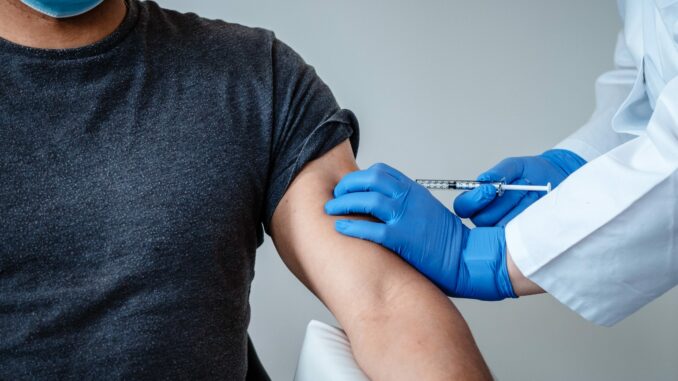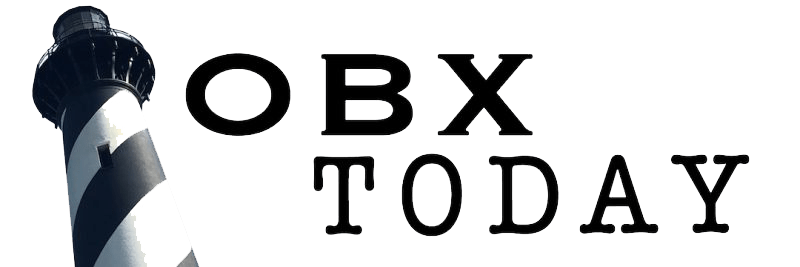
About 40 percent of N.C. residents say they will take a COVID-19 vaccine approved by the Food & Drug Administration, with nearly an equal number saying “it depends” and the remaining 20 percent saying they will not take the vaccine, the Elon University Poll has found.
The survey of nearly 1,390 adult residents found that those who plan to take the vaccine view it as a way to protect themselves and their loved ones, and a pathway to returning to normalcy.
“I want to see my family, my aging parents who don’t want us potentially spreading it to them,” one woman from Mecklenburg County offered. “I haven’t seen them in a year.”
Among the residents who said they won’t take the vaccine, some pointed to a lack of trust in the FDA, fear about potential side effects, and the view that taking the vaccine and wearing a mask infringed upon their individual rights.
“I do not trust taking a new vaccine,” one woman from Pasquotank County responded. “I feel as if they are unsure and they are just experimenting on people and this could turn out very badly.”
Some among the 39 percent who said “it depends” or “not sure” expressed concerns that the approval process was rushed, that others might need the vaccine more than they do or that the vaccine could cause health problems.
“I need to find out more information about the vaccine,” one man from Onslow County said.
Jason Susser, director of the Elon Poll, was our guest on OBX Today on the all new News Talk 92.3 WZPR to discuss the latest poll results and more about Elon University’s program.
The survey asked respondents to weigh in on a range of statements about the development and potential impact of the vaccine, the FDA and COVID-19. Nearly three-fourths agree that vaccines could help end the COVID-19 pandemic. However, a smaller portion (56 percent) agrees that vaccines will be effective in preventing the disease and more than a third (37 percent) believe the vaccine could be more dangerous than COVID-19. More than two-thirds want to wait for others to get vaccinated to see how it worked for them before getting vaccinated.
Fifty-six percent agree that the FDA is trustworthy when it comes to approving a COVID-19 vaccine, and one in four agree with the statement that “some individuals have tampered with the vaccine process for bad purposes,” the survey found.
The Elon Poll also found that a majority of N.C. residents are supportive of requiring COVID-19 vaccinations for employees of private companies and for students at both colleges and universities as well as those in K-12 schools. About three-fourths believe those most at risk from COVID-19 should receive the vaccine first, with the remainder saying the vaccine should go first to those most at risk of spreading the virus.
The Elon Poll found that two-thirds of the state’s residents now personally know someone who has contracted coronavirus, compared to 50 percent in October and 31 percent in June. That increase comes as North Carolina and the country have seen a surge in the number of coronavirus cases, hospitalizations and deaths.
The survey of 1,390 adult residents of North Carolina was conducted Dec. 4-6 using an online opt-in sample marketplace. The survey has a credibility interval of +/- 2.8 percent. The credibility interval is an accuracy measure for opt-in online surveys. A fuller explanation of the credibility interval and the survey methodology are available in the full report.
Will you take the COVID-19 vaccine?
The survey found that while less than half (40.5 percent) of North Carolina residents say they will take an FDA-approved vaccine, that marks an increase from earlier this fall when the Elon Poll asked the same question. In the earlier survey conducted in October, 33 percent said they would take the vaccine. Likewise, the number who said they would not take the vaccine has shifted, with 25 percent saying “no” in the October survey compared to 20.5 percent in December. The shift has been less pronounced among those who say “it depends” or “not sure,” down slightly from 42 percent in October to 39 percent in this survey.
New with this survey was the opportunity for respondents to offer a short explanation about their choice. For instance, one male resident of Transylvania County offered this response about why he will take the vaccine:
“I can’t take living in fear anymore. I’m so sick and have been putting off seeing a doctor for months because I’m so scared of getting covid and even more afraid of spreading it. I have no kind of life anymore and feel like the vaccine is worth the risk since I already can’t do anything.”
One female resident of Lenoir County offered this explanation as to why she would not take the vaccine:
“The most important reason for “No” to taking an FDA-approved COVID-19 vaccine is: I am afraid of the side effects and it was made too fast. I do not have a clue what is in the vaccine, if I am allergic to any parts of the vaccine, and a lot of unanswered questions linger in my mind.”
A selection of these open-ended responses included in the full report.
When demographics were taken into account, the Elon Poll found differences along gender and racial lines. Forty-eight percent of men and 33 percent of women said they planned to take the vaccine, with 36 percent of men and 42 percent of women saying they would not. Sixteen percent of men and 25 percent of women said it depends.
There was a similar split between White and Black residents. Forty-three percent of White residents said they will take the vaccine compared to 27 percent of Black residents. Black residents were more likely to say “it depends,” with 30 percent offering that response compared to 19 percent of White residents. While 43 percent of Black residents said they do not plan to take the vaccine, 39 percent of White residents hold that view.
Responses also varied when party affiliation and age were taken into account. Democrats were more likely to say they will take the vaccine than Republications or those not affiliated with either party, and residents over the age of 65 were more likely to say they will take the vaccine than those in other younger cohorts. Generally speaking, residents in urban environments were more likely to say they will take the vaccine than those in suburban or rural places.
Beliefs about the vaccine and its development
Beyond asking whether residents planned to take the vaccine, the Elon Poll also explored what residents believe about how the vaccine was developed, the institutions involved in the development and the vaccine’s potential impact both on the pandemic and on those who take it. Respondents were asked to respond to a series of statements and indicate how much they agree or disagree with each.
Seventy percent of residents said they believe that vaccines could help end the pandemic, while 19 percent said they neither agree or disagree with the statement and 12 percent disagree. However, only 56 percent said they agree with the statement that the vaccines will be effective in preventing the disease, with 31 percent saying they either agree or disagree and 13 percent saying they disagree.
Residents were generally trusting of the FDA’s vaccine-approval process and with the length of time that it took to determine if a vaccine was safe. Fifty-six percent agree with the statement that “the FDA is trustworthy when it comes to approving a COVID-19 vaccine” while 22 percent disagree. Similarly, 64 percent agree with the statement that “by the time I can get the vaccine, doctors will have had enough time to determine if the vaccine is safe” with 15 percent disagreeing.
More than two out of three residents appear wary of being the first in line to receive the vaccine. Asked to respond to the statement “I want to wait for other people to get vaccinated before me to see how it worked for them,” 68 percent said they agree while 15 percent said they disagree.
The Elon Poll saw some skepticism about how the vaccine was developed and the potential for negative side effects. Residents were nearly evenly divided when asked to respond to the statement “the vaccine might be more dangerous than COVID-19 itself,” with 34 percent saying they agree, 37 percent saying they disagree and the remaining 29 percent saying they neither agree nor disagree. One out of four agree with the statement “some individuals have tampered with the vaccine process for bad purposes” while 38 percent said they disagree and 37 percent said they neither agree nor disagree.
The cost of the vaccine does not appear to be causing much concern to many North Carolina residents. Asked to respond to the statement “I won’t be able to afford a COVID-19 vaccine,” 47 percent said they disagree and 24 percent said they agree.
Required Vaccinations
While a majority of North Carolina residents say they approve of the required vaccination of private company employees, college students and K-12 students, there are still significant segments who oppose such requirements. Fifty-four percent of residents said private employers should require employees to be vaccinated compared to 46 percent who disapproved of that idea. The required vaccination of college students was the most popular, with 61 percent of respondents supporting that move. The poll found that 57 percent of residents approve of requiring K-12 students to be vaccinated.
Trustworthy Leaders
The Elon Poll also gauged the level of trust North Carolina residents have for key figures in the fight against the pandemic. Dr. Anthony Fauci, an infectious disease expert who has been one of the most visible leaders in the federal effort, was found to be the most trusted, with 58 percent of residents saying he was very or somewhat trustworthy. N.C. Gov. Roy Cooper and President-elect Joe Biden ranked similarly, with 52 percent saying Cooper was very or somewhat trustworthy and 51 percent saying Biden was very or somewhat trustworthy.
Thirty-eight percent of North Carolina residents said President Donald Trump is very or somewhat trustworthy, while 49 percent said he is not at all trustworthy. Only 34 percent said Dr. Mandy Cohen, secretary of the N.C. Department of Health and Human Services, was very or somewhat trustworthy, with 44 percent saying they “don’t know.”

